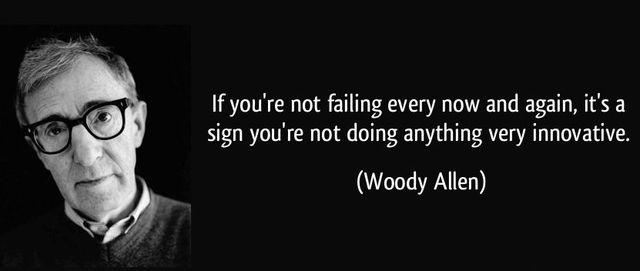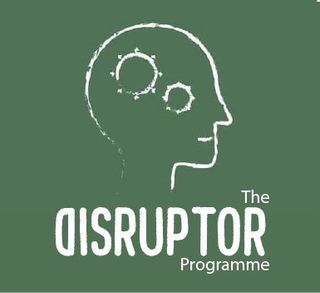10 Myths of Innovation
10 MYTHS OF CREATING A CULTURE OF INNOVATION
Innovation means solving customer problems in a way that’s better than your competitors. But how can you set up your business and teams to encourage innovation?
The first step is to change your thinking about the myths that surround the whole subject.
Myth #1: Innovation isn’t important to my business
You may feel that way if you own a business that doesn’t appear to have seen much change over the years — cleaning and food service are just two examples.
But many equate innovation only with breakthrough technology. In actual fact, the definition of innovation is anything that’s new — and this can apply to methods, ideas, products, services and business models.
In this sense, an improvement in the way you do things could be classed as an innovation. For instance, Apple didn’t invent the cell-phone or the touchscreen, but they did invent the iPhone. Even in non-technology industries such as carpet cleaning, innovation has given some companies a competitive advantage. Chem-Dry used the invention and patenting of its Hot Carbonating Extraction cleaning method and then its XTS system to help it grow into the world’s largest carpet cleaning franchise.
My prediction is that within the next ten years, robot cleaning machines will take over much of the drudge work done by cleaners now. If you think innovation isn’t important in your cleaning business, how will you respond when your competitors cut their labour costs by 70% and start under-pricing you?
Myth #2: Small businesses lack the resources to innovate
“Our recent experience showed that many small-business owners are highly innovative but not aware of it,” says Forbes magazine. The reasons are that small businesses tend to be closer to both their customers and their employees than larger companies, and because of their size are more agile and ready to adopt new ideas.
Forbes also points out that throwing lots of resources at innovation doesn't always work. “More promising innovations have been killed by too much time and money, and too many people, than have been killed by lack of any of these, ” they say.
Myth #3: Innovation is a waste of time and money because most new ideas fail
It’s true that in even the most innovative organisation, most ideas will never make it off the drawing board. “Innovation is inherently risky, to be sure, and getting the most from a portfolio of innovation initiatives is more about managing risk than eliminating it,” says McKinsey & Co. I'm reminded of the saying “If you try, you risk failure. If you don't try, you ensure failure.”

It’s true that being among the first to take on innovative new products and methods developed by someone else can give your business a competitive advantage. Famously, Apple’s first iPod was developed almost entirely outside the company by cleverly managing the company’s partnerships with suppliers. But this kind of advantage can be short-lived when your suppliers start selling to your competitors too (or, as in Apple’s case, producing their own versions of your products).
Myth #5: You need innovative people to be able to innovate
Many business owners think of innovation as separate from the rest of their business, something they need different people for. In fact, an essential for successful innovation is understanding your customers, so those people who most come into contact with customers are often the best sources of innovative ideas. The key is building a company culture in which innovation is seen as part of everybody’s job.

Myth #6: Because of its unpredictable nature, innovation can’t be managed
Who would have thought that mobile phones would become cameras and music players? Or that you’d be able to use them to socially connect with people around the world? But while it’s true that innovation is often unpredictable, it’s equally true that it’s more unlikely for innovation to occur if you don’t create a culture of innovation. One of the nicest quotes I’ve heard is that you must have a culture where you “expect the unexpected”.
A lot of companies want to innovate but the leadership team has no clear strategy around innovation. Instead, employees are told to come up with new ideas and “let’s see what happens”. Mostly, nothing happens. But in the most innovative companies, leaders provide clear direction and purpose for their teams, channeling their creativity into what’s important for the business.
Myth #7: The only good innovation is an original innovation
Who would have thought that mobile phones would become cameras and music players? Or that you’d be able to use them to socially connect with people around the world? But while it’s true that innovation is often unpredictable, it’s equally true that it’s more unlikely for innovation to occur if you don’t create a culture of innovation. One of the nicest quotes I’ve heard is that you must have a culture where you “expect the unexpected”.
A lot of companies want to innovate but the leadership team has no clear strategy around innovation. Instead, employees are told to come up with new ideas and “let’s see what happens”. Mostly, nothing happens. But in the most innovative companies, leaders provide clear direction and purpose for their teams, channeling their creativity into what’s important for the business.
Myth #8: Good ideas come in a flash of inspiration
To be clear, I’m not talking about plagiarism in Myth #8. I’m simply saying that “there’s nothing new under the sun” and most brilliant ideas don’t come out of nothing, they come out of a synthesis of other good ideas.
“It’s very, very rare to find cases where somebody on their own, working alone, in a moment of sudden clarity has a great breakthrough that changes the world.” So says science writer Steven Johnson. Good ideas, he says, “are built out of a collection of existing parts”. He explains that the best way to get good ideas is not to shut yourself away in a dark room, waiting for a eureka moment, but to get out there and network, exposing yourself to as many other ideas and debate as possible, and then borrow, repurpose and recombine.
I have to say that many of my best ideas have seemed to come out of the blue - while I’m showering, or just drifting off to sleep. But Johnson has an answer to that, too. Charles Darwin always claimed that his theory of natural selection while he was reading a book. Yet Darwin’s notebooks reveal that the theory had been forming in his head for more than a year. The theory wasn’t a flash of insight, it was what Johnson calls a “slow hunch”. Alexander Graham Bell referred to all the years it took him to suddenly discover the concept of the telephone as ‘preparation’.

Myth #9: Brainstorming is the best way to get innovative ideas from your team
The term “brainstorming” was invented in the 1950s and it became a popular way for organisations to try to solve problems by gathering ideas spontaneously contributed by their teams. The idea is that because random ideas spark other ideas from the team, brainstorming enables a group to produce something greater than the sum of its parts. But after six decades of independent scientific research, there is very little evidence for this, and a number of other ways of producing effective ideas have come into use.
Myth #10: Good ideas are rare
Good ideas are out there for anyone with the wit and the will to find them, according to Tipping Point author Malcolm Gladwell. There are ways of tipping the odds of finding them in your favour. Some of these we’ve already discussed - creating a culture of innovation, being customer-focussed, and borrowing other people’s ideas and redeveloping them. Defining problems you want to solve is another strategy. Einstein said, “If I had 20 days to solve a problem, I would take 19 to define it.” Hard work is needed too. “The harder I work, the luckier I get,” said Samuel Goldwyn in reference to coming up with ideas for blockbuster movies.
I'm Robin La Pere, no ordinary business and franchise consultant.
The image shown above my head is of part of Samsung's Innovation C-Lab in South Korea. Like most technology companies, Samsung invests heavily in R&D - otherwise known as innovation - in order to try to keep ahead of competitors who are trying to do the same.
But if you're not in the technology industry, and you operate a smaller business, how important is innovation to your continued success? The problem is that you never know when someone else's innovation is going to creep up and bite you - even in industries that have changed only slowly over recent years. In this article, I use the example of the cleaning industry which is being "slowly revolutionised" by innovation and new technology.
Will you wait until innovation bites you or will you aim to lead the way? One of the ways I can help you is by looking at your business with "fresh eyes", hopefully seeing the the wood for the trees. Together, we can build a culture of innovation in your business that won't require a massive investment, only a change in mindset and expectations.
Need to improve your business?
I offer these services to help you manage disruption, prevent stalling and promote innovation in your business:
- Threat and opportunity evaluation
- Business model generation
- Strategy planning
- Key business driver analysis and development
- Conference and seminar presentations
- Innovation workshop facilitation
- Business improvement
- Business re-engineering
- ‘The Disruptor’ Programme (see below)

Are you facing new or greater competition? Is your industry being disrupted? Is your business growth in danger of stalling?
The best way to predict the future is to create the future. In today's fast-changing world, it's disrupt or be disrupted. The good news is that small to medium sized businesses can be more innovative and agile than large corporations. The Disruptor Programme has been developed specifically to help SME leaders to:
- empower them with the thinking and practical skills to face change and lead a more agile and innovative business
- gain insights in how their customers see value and where opportunities exist to take advantage of this
- examine the company’s competencies and culture in order to identify opportunities to improve and innovate
To arrange a free personal Initial Consultation with me on how The Disruptor Programme can help you to futureproof your company, contact me now on +64 9 360 6063 or Skype Noordinary1262 or send me your email address and I will get back to you within 24 hours.
Disruptor Service Request
Thank you for contacting me about The Disruptor service.
I will get back to you within 24 hours to arrange for your free Initial Consultation.
I will get back to you within 24 hours to arrange for your free Initial Consultation.
Oops, there was an error sending your message.
Please try again later
Please try again later
FREE E-BOOK:GIVE YOUR BUSINESSA NEW LEASE ON LIFE
Download Why Your Business Model is in Trouble ebook
Thanks for downloading your free e-book Why Your Business Model is in Trouble. Enjoy!
Oops, there was an error sending your message.
Please try again later
Please try again later
Related Articles
FREE E-BOOK:DO YOU NEED A BETTER APPROACH TO YOUR BUSINESS STRATEGY?
Why we use the BMC
Thanks for downloading your free e-book
Oops, there was an error sending your message.
Please try again later
Please try again later
WHO AM I?
My name is Robin La Pere. I’m a business, franchise and marketing consultant with real
experience in these fields and a proven background in helping my clients to futureproof, grow or franchise their businesses. I offer a free Initial Consultation so we can get to know each other before we make the decision to work together.
Download your free e-book
LET’S GET STARTED!
Check out my Free Resources
Subscribe to my Free Email Newsletter
Schedule your Free Consultation



